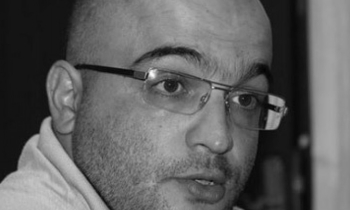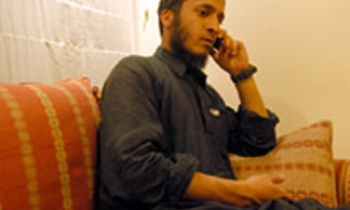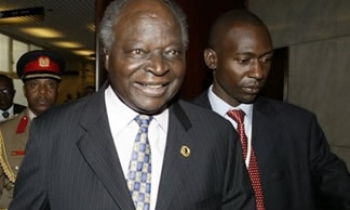The editor of a women’s rights magazine in Afghanistan was arrested in Iran on March 4 and continues to be held without charge.
The Afghan Independent Journalists’ Association (AIJA) has reported that Ali Mohaqiq Nasab, editor of the monthly Haqoq-e-Zan (Women’s Rights) magazine, was reportedly detained by Iranian officials in Qumm, near the Iranian capital Tehran.
Documents, phones and a computer were allegedly confiscated from his home at the time of his arrest. Nasab’s wife was denied access to see him or seek any information about him and officials from Iran’s embassy in Kabul would not answer the AIJA’s questions, according to AIAJ, an associate of the International Federation of Journalists (IFJ).
IFJ expressed alarm at the trend of serious charges being laid against journalists who maintain and act on their rights to freedom of expression, especially in relation to their investigation of women’s rights.
“Journalists as guardians of the public interest and free expression are essential in promoting the rights of all in a free and open society, including the rights of women,” said IFJ Asia Pacific Director Jacqueline Park.
“Nasab’s arbitrary detention is yet further evidence of the government’s inability to tolerate the press,” Paris-based Reporters sans Frontières (RSF) said. “Local journalists are subject to constant harassment and intimidation, against which they are powerless. Foreign journalists in Iran are hardly any better off.”
The arrest of Nasab, a prominent supporter of women’s rights, follows the death sentence imposed by an Afghanistan court on Sayed Parvez Kambakhsh in January on charges related to accessing materials about women’s rights under Islamic rule.
Kambakhsh, 23, a journalist for the daily Janan-e-Naw, was charged with blasphemy and accused of distributing articles and books that contained anti-Islamic sentiment. He is appealing the sentence and an international campaign is calling for his sentence to be overturned.
Nasab also was accused of blasphemy in Afghanistan in October 2005, and sentenced to two years’ jail. The editor was charged with intentionally publishing anti-Islamic articles in Haqoq-e-Zan that questioned harsh penalties for adultery and theft. He had reprinted articles by an Iranian scholar criticising the stoning of Muslims who converted to another religion and the use of corporal punishment for people accused of adultery.
Nasab’s sentence was reduced on appeal to six months despite some religious groups calling for the death penalty.
His arrest had been especially controversial because authorities bypassed Afghan legislation that states journalists cannot be arrested until the government-appointed Media Commission for Investigating Media-Related Offences has considered the case.
When the commission did consider Nasab’s case following requests by Afghan media groups and international human rights groups, it concluded that Nasab had not deliberately insulted Islam and was not guilty of blasphemy.
“They must not be arrested without charge by any government. IFJ calls on the authorities in Iran, and Iranian officials in Kabul, to provide valid evidence for Nasab’s arrest or ensure he is released immediately," said Park.









